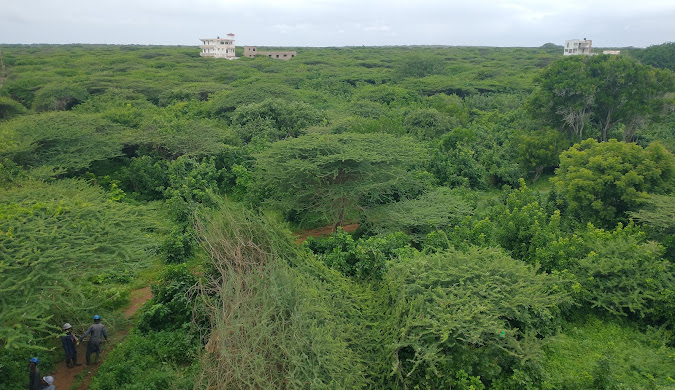Lamu Island , Kenya
Lamu Island: A Timeless Paradise of Culture, Beaches & Tranquility 🌴🌊
Lamu Island, located off the coast of northern Kenya, is a place where history, culture, and natural beauty converge. With its pristine beaches, rich Swahili heritage, and laid-back atmosphere, Lamu is a hidden gem for travelers seeking a peaceful escape or a journey back in time. The island offers a unique blend of traditional life, stunning architecture, and unspoiled beaches, making it one of Kenya’s most cherished destinations.
🌍 Why Visit Lamu Island?
Lamu is the oldest continuously inhabited town in Kenya and one of the best-preserved examples of Swahili architecture in East Africa. The island is renowned for its Islamic culture, traditional dhow boats, and cobblestone streets that wind through the charming Lamu Old Town. Whether you're interested in cultural exploration, unwinding on beautiful beaches, or experiencing local traditions, Lamu Island has it all.
🏖️ Stunning Beaches: The Ultimate Tropical Getaway
Lamu Island is known for its pristine, powder-white beaches, where turquoise waters meet golden sand. The island offers several beaches, each with its own charm.
-
Shela Beach:
This is the most famous beach on Lamu, offering long stretches of sand ideal for relaxing, swimming, and sunbathing. The beach is lined with luxury resorts, but its serene and quiet atmosphere makes it perfect for a peaceful retreat. -
Manda Bay:
Just a short boat ride from Lamu, Manda Bay offers a more secluded experience with calm waters, perfect for kayaking, swimming, and enjoying breathtaking sunsets. -
Kizingoni Beach:
Located on the southern tip of Lamu Island, this remote beach offers a tranquil environment, away from the more touristy areas, ideal for those seeking solitude.
🏰 Rich History and Culture: Lamu Old Town
A UNESCO World Heritage site, Lamu Old Town is a captivating place where history, art, and culture are preserved. The town is a labyrinth of narrow streets, ancient Swahili architecture, and intricately carved doors. Walking through Lamu Old Town feels like stepping back in time, with donkey carts (the primary mode of transport) clattering along cobblestone lanes and traditional Swahili houses with beautifully decorated wooden balconies.
-
Historical Landmarks:
-
Lamu Fort: Built in the 19th century, this historic fort has served as a military stronghold and now houses a museum detailing the island’s fascinating history.
-
Lamu Museum: Learn about Lamu’s Swahili culture, its influence on the Indian Ocean trade routes, and its Islamic heritage.
-
Lamu Mosque: A stunning example of Islamic architecture, the mosque is an important cultural and religious site in Lamu.
-
⛵ Traditional Dhow Boats and Water Activities
Lamu’s iconic dhow boats are a must-see. These traditional wooden sailing boats have been used for centuries for trade and transportation along the coast of East Africa.
-
Dhow Cruises:
One of the best ways to explore the island’s coastline and nearby islands is by taking a sunset dhow cruise. You’ll glide over the tranquil waters, enjoying panoramic views of Lamu’s beaches, wildlife, and breathtaking sunsets. -
Snorkeling & Diving:
The surrounding waters are home to vibrant coral reefs and marine life, making Lamu a great destination for snorkeling and diving. Explore the underwater world around Manda Island or Kiwayu Island. -
Kayaking and Paddleboarding:
For a more leisurely activity, try kayaking or paddleboarding in the crystal-clear waters around the island. You’ll get a unique view of the beaches and can spot wildlife such as dolphins, sea turtles, and various bird species.
🕌 Lamu’s Swahili Culture: A Unique Experience
Lamu is a cultural melting pot, where Swahili culture thrives. The island is predominantly Muslim, and its cultural identity is deeply influenced by its Islamic heritage. The locals are known for their hospitality, and visitors can immerse themselves in local traditions, cuisine, and art.
-
Swahili Cuisine:
Sample delicious Swahili dishes such as pilau rice, samosas, fresh seafood, and mandazi (fried dough treats). Dining in Lamu is a unique experience, with several restaurants offering fresh, local ingredients and traditional flavors. -
Lamu Cultural Festivals:
-
Lamu Cultural Festival: Held annually, this event celebrates the island’s cultural heritage with traditional dances, music, dhow races, and craft exhibitions.
-
Lamu Yoga Festival: For those looking for relaxation and mindfulness, this festival focuses on wellness, offering yoga sessions, meditation, and more.
-
-
Donkey Sanctuary:
The donkey is a beloved part of life on Lamu, and the island even has a donkey sanctuary that cares for injured or abandoned donkeys. A visit to the sanctuary gives you an insight into the important role donkeys play in the island’s daily life.
🏡 Accommodation Options: From Luxury to Eco-friendly Stays
Lamu offers a range of accommodation options, from luxurious beachfront villas to budget-friendly guesthouses. Whether you’re looking for an intimate, romantic getaway or a family-friendly retreat, Lamu has something to offer.
-
Luxury Accommodation:
-
Peponi Hotel: Situated in Shela, this iconic hotel offers luxurious rooms, fantastic views, and excellent service.
-
Lamu House Hotel: A boutique hotel with a rooftop pool, offering both elegance and comfort.
-
-
Budget Options:
-
Jannat House: Located in Lamu Old Town, this guesthouse offers simple, affordable accommodation with a cultural flair.
-
Kizingoni Beach Camp: For a more rustic experience, this eco-friendly camp offers a perfect escape close to nature.
-
🚶♂️ Best Time to Visit Lamu Island
-
Dry Season (December to March): This is the ideal time to visit, with sunny days and clear skies perfect for outdoor activities and beach time.
-
Wet Season (April to June): While Lamu experiences a short rainy season during these months, it’s also quieter, offering a more peaceful experience for those who enjoy fewer tourists.


